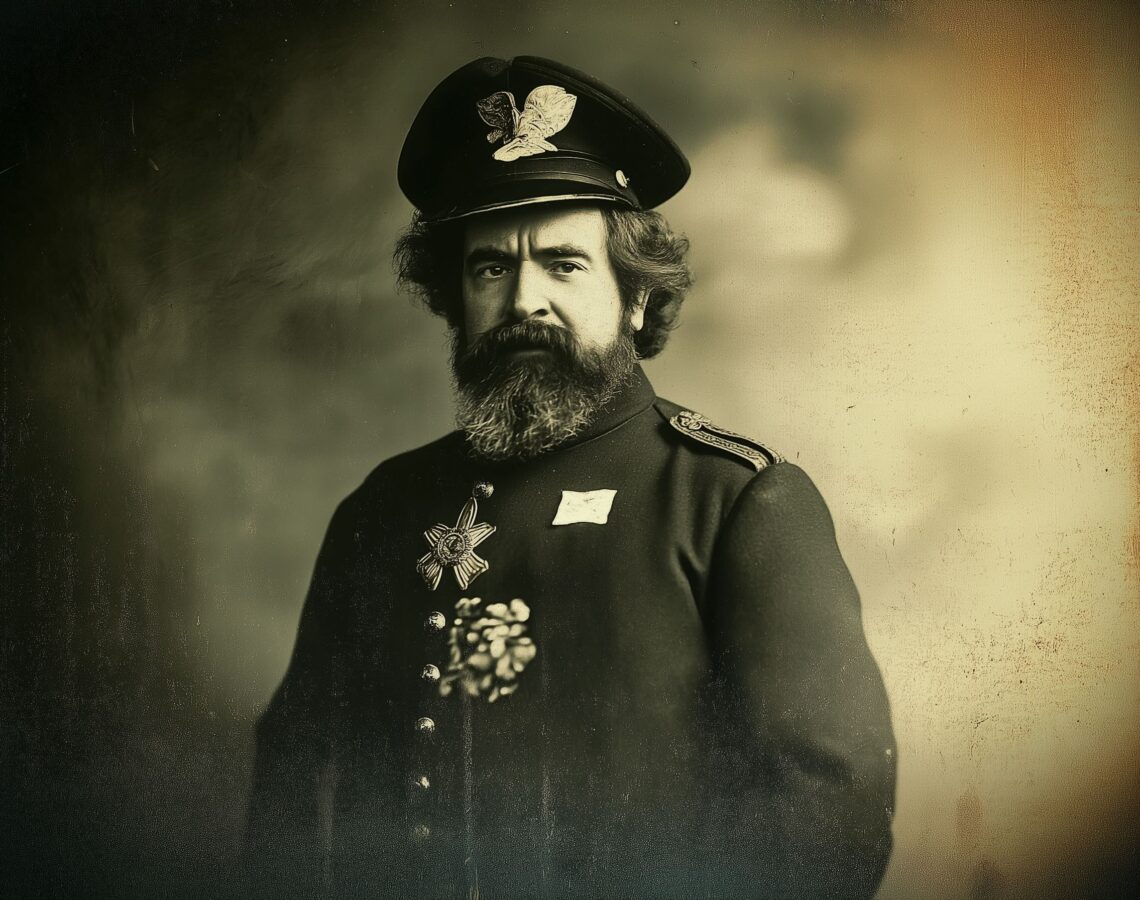The Emperor’s Haze: San Francisco’s Enigmatic Reign of Joshua Abraham Norton

The Emperor’s Fog
The fog that summer lay thick as crushed pearls across San Francisco Bay, transforming the muddy waters into a silvered mirror that reflected nothing. It was in such weather that Joshua Abraham Norton—once a speculator in rice futures, now reduced to pawning his pocket watch—discovered his destiny in the morning paper’s shipping reports.
The revelation came to him between sips of bitter coffee at a Montgomery Street café, where he had spent his last dime on breakfast. The words before him blurred and rearranged themselves until they spelled out, clear as cathedral bells, his divine appointment: Emperor of these United States.
That evening, as gaslight pierced the perpetual fog like golden needles, Norton appeared at the offices of the San Francisco Bulletin wearing a coat whose blue had faded to the color of distant mountains. His proclamation, written in a hand that betrayed both confidence and desperation, declared the dissolution of the Republic and the establishment of an Empire under his beneficent rule.
The editor, George Fitch, might have thrown the document into the waste bin, but something in Norton’s bearing—perhaps the way his eyes held both madness and melancholy, like twin moons in a troubled sky—gave him pause. The next morning, San Francisco awakened to find itself an imperial city.
What followed was a reign unprecedented in the young nation’s history. Norton I, as he styled himself, paraded through the streets in a uniform that grew more elaborate with each passing season. Brass buttons gleamed like new-minted coins, and his hat bore feathers from birds that existed only in dreams. Restaurant owners vied for the honor of feeding him, placing brass plaques beside tables reading “Reserved for His Imperial Majesty.”
He issued proclamations with the gravity of Solomon: bridges must span the bay, political parties must dissolve like morning mist, and Congress must convene in a hall of mirrors to see its own foolishness. The citizens of his realm—from Chinese merchants to Barbary Coast sailors—accepted his authority with a peculiar grace, as if understanding that sometimes wisdom wears the mask of madness.
His imperial currency, elaborately printed notes promising future reward, was honored in saloons and oyster houses throughout the city. When an overzealous police officer attempted to commit him to an asylum, the public outcry echoed from Telegraph Hill to the Mission. The chief of police released him with a formal apology, acknowledging he had committed no crime, and thereafter ordered that all officers salute Norton I when they encountered him on their beats.
On a January evening in 1880, when the fog rolled in thick enough to muffle footsteps and soften shadows, Emperor Norton collapsed at California and Dupont Streets. His final words, witnessed by a Chinese merchant who held his hand, were lost to history—though some claim he spoke of bridges yet unbuilt, spanning not just the bay but the divide between what men dream and what they dare to build.
Ten thousand citizens attended his funeral, their umbrellas black roses against the pearl-grey sky. In death, as in life, he unified the city—Chinese merchants marched alongside bankers, madams beside ministers. They buried him not as Joshua Norton, failed businessman, but as Norton I, Emperor of the United States and Protector of Mexico, sovereign of that shadowland where fantasy and reality dance together in the fog.
Some say that on nights when the fog is thickest, and the moon hangs like a worn silver dollar above the bay, you can still see his figure processing through the streets, inspecting his eternal domain. His plumed hat bobs through the mist, and in the echo of footsteps on cobblestones, San Francisco remembers its only emperor, who ruled not by force but by the power of imagination—that rarest and most precious coin of all.
